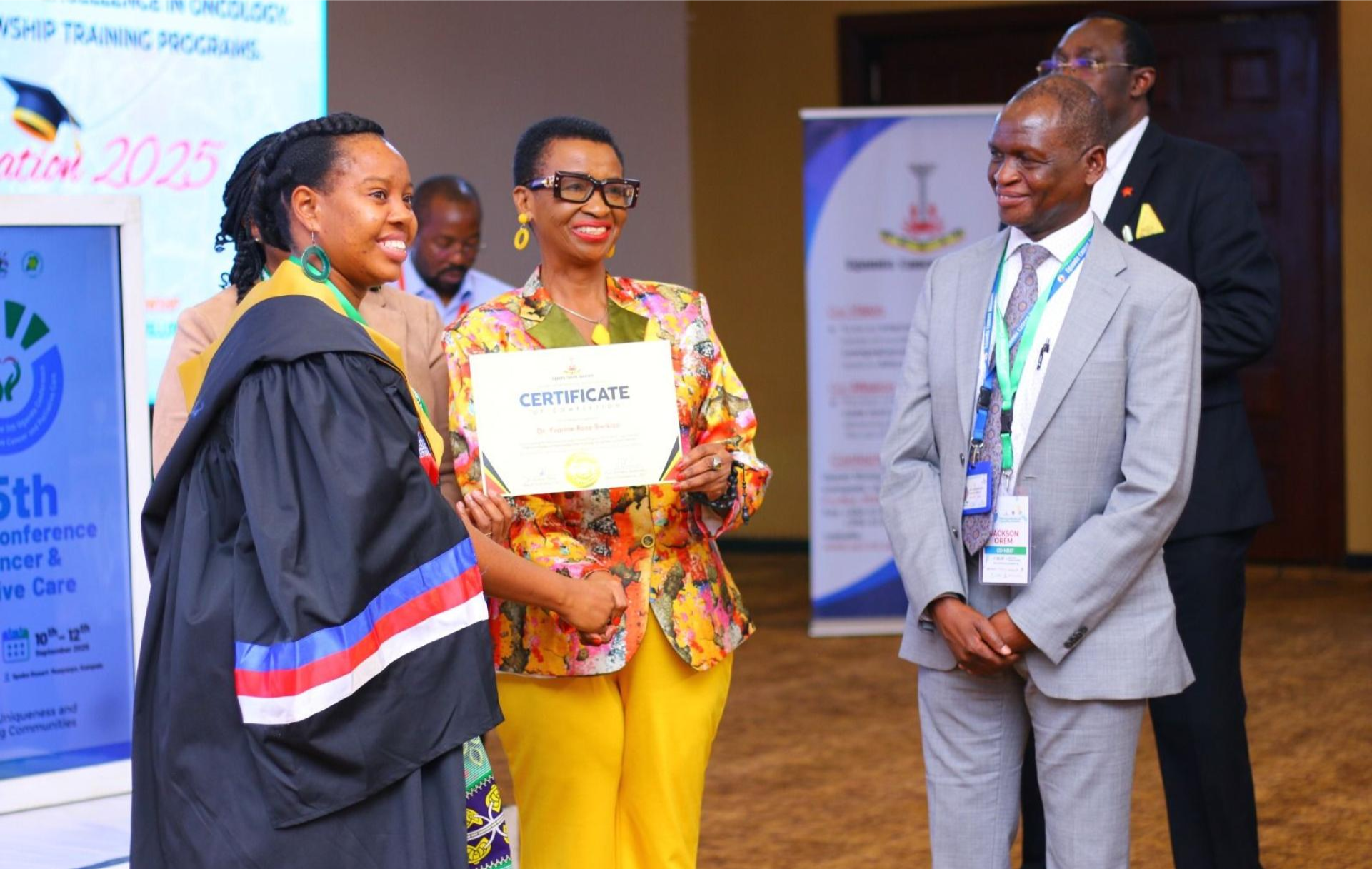Health
A New Hope: Uganda Trains 28 Cancer Specialists to Tackle Growing Crisis
Uganda’s efforts to combat cancer have received a significant boost following the graduation of 28 extensively trained cancer specialists.
These professionals underwent two years of intensive super-specialist training, focusing on treating the types of cancer most commonly affecting Ugandans. Among the graduates, thirteen specialised in women’s cancers like cervical and breast cancer, seven concentrated on childhood cancers, while eight trained in adult medical and haematological oncology.
During a ceremony held last evening, the Uganda Cancer Institute (UCI) marked what many in the healthcare sector called a pivotal moment. Dr. Nixon Niyonzima, Head of Research and Training at UCI, stated that the initiative was launched out of urgent need, as the institute has been functioning with a deficit of nearly 3,000 cancer specialists required to meet the country’s needs. “The institute has been operating with a shortfall of about 3,000 specialists needed for cancer services,” he noted.
According to the National Planning Authority, there is an anticipated five-year shortage of 350 specialists for women’s cancers and 600 medical oncologists. While the newly graduated specialists represent progress, they are only a fraction of what is needed. The programme has already attracted trainees from countries such as Liberia, Malawi, and Kenya, reinforcing Uganda’s emerging role as a regional centre for oncology training.
Dr. Jackson Orem, UCI’s Executive Director, praised the programme for reducing costs and mitigating brain drain. He also emphasized that it enables them to educate more professionals than if they were sent abroad for training.
Although the graduates are already working at UCI, Orem acknowledged that they are “just a drop in the ocean,” pointing out that an estimated 30,000 specialists are ultimately required to adequately staff cancer treatment facilities across the country.
Uganda sees approximately 36,000 new cancer diagnoses annually, a number that continues to rise. In response, UCI has rolled out three more specialized training tracks: a fellowship focused on male cancers, a four-year programme in radiation oncology, and another dedicated to head-and-neck cancers. Niyonzima noted that these areas are experiencing a rapid increase in cases, necessitating proactive training efforts.
With this new cohort of graduates and the expansion of specialized programmes, Uganda is strengthening its capacity not only to provide treatment but also to educate and retain the necessary workforce to tackle one of the nation’s most urgent health concerns. The graduation represents more than just academic success, it reflects a strategic commitment to delivering high-quality cancer care within the country.
Comments



























